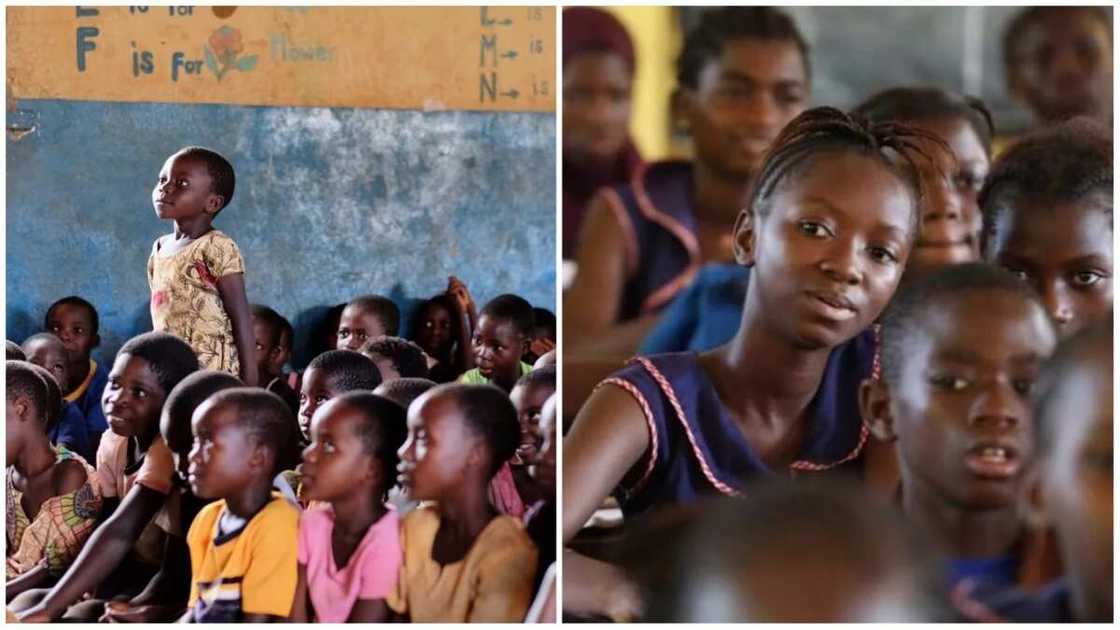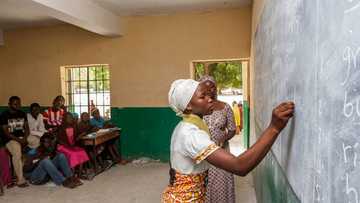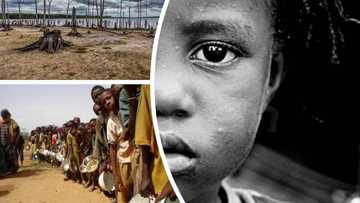Benefits of education in developing countries
People always talk about the importance of education, especially for developing countries. But how does education help people? Why do developing countries need to pay more attention to education? Let’s consider this in our article, where we will talk about the many benefits of education for people in developing countries all over the world.

The value of education in any society should not be understated. Education is a human right, and no one should be deprived of it. However, in many countries of the developing parts of the world, it is not viewed as important or as something that could actually benefit people. The value of education is set to the side and often forgotten.
Therefore, we want to share with you the 10 reasons why education is important for developing countries. Let’s take a look.
Ending poverty

UNESCO’s calculations show that over 170 million people can get out of poverty if all the children in developing countries left school with at least some basic reading skills. If that is what could be achieved with such minimal efforts, imagine what the benefits of having a degree would be!
In addition to this, UNESCO’s statistics also show that an extra year of studying can increase a person’s income by 10% and raise the annual GDP by 0.37%.
A drop in fertility rates could also affect poverty. Just one additional year of education can reduce the woman’s probability of becoming a mother at an early age by 7.3% (granted if she has completed primary education). Countries that suffer from overpopulation often have high poverty rates. Therefore, education can also reduce poverty through reducing fertility rates.
Ending hunger

Education can help the country to promote sustainable agriculture, improve people’s nutrition and achieve food security. On a personal level, one of the benefits of getting an education is the ability to feed yourself and your family properly.
According to extensive research on the topic, scientists came to the conclusion that the more educated the mother is, the better food she can provide for her children. Judging by statistics from UNESCO, around 47 million children in developing countries are stunted because of malnutrition.
If all of the mothers from these countries finished primary education, 1.7 million children could have been saved from malnutrition. If the mothers finished secondary education, this number could have been increased to 12.2 million.
Education is also important for agriculture, as farmers that have more knowledge about the latest agricultural developments can achieve better results with less effort.
Promoting health

Education is important for ensuring the well-being and healthy lives for people of all ages. People that are better educated are not as vulnerable to many health risks as their less educated peers are. Education is a great tool in combating the spread of HIV/AIDS, reducing child and mother mortality rates and promoting a healthy lifestyle. Even a completed primary education makes people more aware of many diseases and the ways of preventing them.
Overall, providing women with proper education is of utmost importance, as it can save their lives, as well as the lives of their (future) children. Every extra year of mother’s education reduces the risk of infant mortality by 10%.

Read also
Coronavirus: Engaging activities you can do to avoid boredom following the stay at home order
If the child’s mother can read, the chance of that child surviving until the age of five increases by 50%. UNESCO statistics show that almost 2 million children from the poorest African countries would still be alive today if their mothers had completed secondary education.
Providing equal access to good education for all

READ ALSO: Early childhood education in Nigeria: issues and problems
Confusing as it might sound, education can actually lead to promoting learning opportunities and ensuring equal access to quality education. Educated people have the ability to empower others and level the playing field by introducing equal access to education for all people.
People that receive at least basic education tend to encourage their children to study as well. They often try to ensure that their kids study at least a little bit longer than they did. Accessible education can help many parents in this quest.
Quality education accessible for all citizens can improve not only the lives of the individuals, but also the situation in the whole country. People that have access to education are more aware, intelligent and active, which is great for the country’s development.
Promoting gender equality

Many developing countries are far from achieving gender equality. Girls and women are often perceived as lesser than boys and men. They are denied education, jobs and opportunities purely on the basis of their gender. In addition to that, they are frequently forced to marry early and perform the role of housewives, as lack of proper education prevents them from doing much else.
However, providing the female population with proper education can empower them and help them prove that they are just as capable as the male population (if not more). The longer girls stay in school, the more they will be able to achieve in the future.
As a matter of fact, empowering women can also significantly boost the country’s economy. According to research, some countries suffer tremendous losses each year just because girls’ education is not given enough attention. If given an opportunity to learn, women would be able to enter the workforce and work on a par with men.
Ensuring sanitation and clean water

Lots of developing countries suffer from lack of clean water and poor sanitation. When communities are educated, they understand the importance of proper sanitation and clean water, as they see the connection between these two things and the health of the people. Thus, they will put more effort into cleaning and using cleaner water.
At the same time, as the citizens become more educated and more financially capable, they can improve the situation with clean water sources in their homes and communities. With the help of the newfound knowledge, they can also develop methods of improving the situation with water for millions of others.
Problems with sanitation and access to clean water actually have a negative effect on education. Some children have to spend hours on acquiring drinkable water for their families, which leaves no time for studying. Poor sanitation leads to diseases that make children miss school. So, by introducing proper education, this vicious circle can be broken.
Encouraging economic growth

We have mentioned a few times before that education is one of the main pillars of the country’s economic growth. It can help societies to achieve stability and even prosperity, if citizens spend more time in school. A longitudinal study that spanned over 45 years is a proof of that.
Here is why:
In 1965, people in the Pacific and East Asia spent almost three more years in school than their peers in Sub-Saharan Africa. 45 years later, the annual growth of GDP per capita in the Pacific and East Asia was 3.4%, but it was only 0.8% in Sub-Saharan Africa.
Among the personal benefits of higher education is the ability to find a better-paying job. In addition to signifying acquired skills, a college degree shows ability to learn and adapt. That is why most prestigious companies require a degree, as a person that has one can, learn and grow. In other words, a college degree improves career opportunities.
Reducing inequalities within and among different countries

When children with all kinds of geographic, cultural and demographic backgrounds can have equal access to education, it can have a positive effect on the income inequality within the country. Over time, this can also result in reducing inequalities on the global scale.
According to research, a mere 0.1% improvement in education equality of a country can gradually improve the GDP per capita by 23% (over the span of forty years). For instance, the example of Vietnam has proven this. By making education more equal, Vietnam’s GDP surpassed that of Pakistan, where access to education is not nearly as equal.
In addition, when people from developing countries have the ability to receive proper education, they can later use it on a global scale. They can gain entry to higher positions in politics and economics, where they can use their knowledge and personal experience to improve the lives of their fellow people.
Making cities and communities more sustainable

Proper education is a perfect tool for teaching people how to make their communities and settlements safer, more inclusive, sustainable and resilient. Through education, people can understand why all of those things are important and how to achieve them.
When people are offered good education, they can gain knowledge and skills that will allow them to work on alternative energy sources, more efficient use of available energy, urban planning, management of clean water and sanitation, as well as many other things that are important for sustainable settlements.
As most of such skills are obtained on higher levels of education, people should be encouraged not to abandon their studies early on. That way, they can improve both their lives and the lives of everyone in their community.
Promoting peace and justice

Last, but certainly not least, education can lead to a more just, peaceful and tolerant society. Ignorance is often the root of many conflicts. When it is eradicated through education, the amount of violent clashes can be greatly reduced.
Research suggests that people who have completed secondary education seem to be much more tolerant than their peers who have only finished primary schools. They are more accepting of people of a different race or religion, those who speak a different language, immigrants and people with HIV.
Education also encourages good governance, transparency and stability. It is a good tool for fighting corruption and graft, as educated people are more aware of such things and have the means to fight them. In addition to that, societies with better education have better justice systems that help combat crime on all levels.
To top it all off, literate people are more active in the democratic process than their illiterate peers. They are more likely to exercise their civil rights and stand up to injustice.
As you can see, education has many benefits for developing countries. It can make their citizens safer, healthier, more productive and self-aware, which can have a positive effect on a country as a whole. We hope that this has been helpful to you and that you have been able to educate yourself on this topic :)
READ ALSO: Girl child education in Nigeria: problems and prospects
Source: Legit.ng











